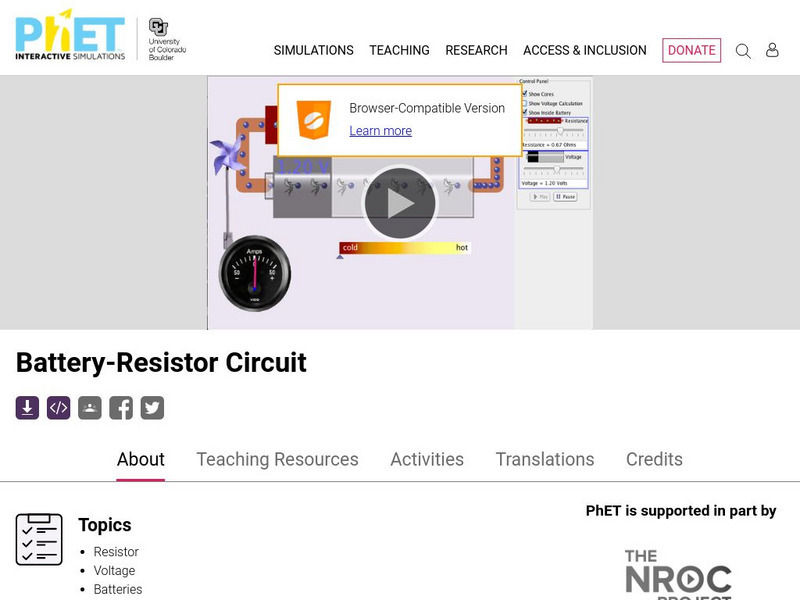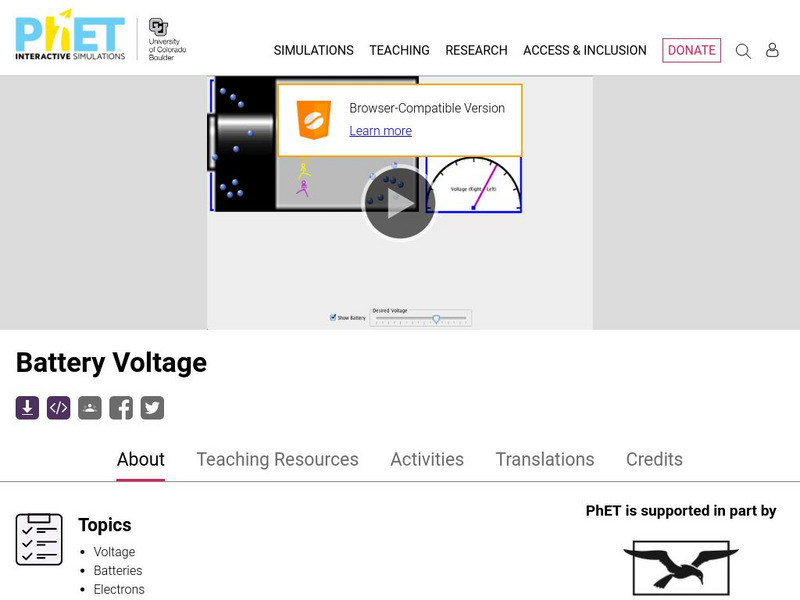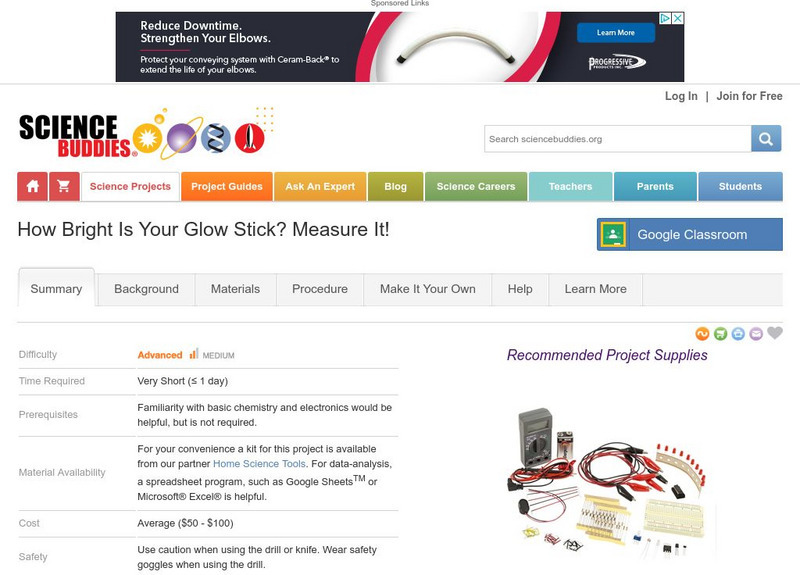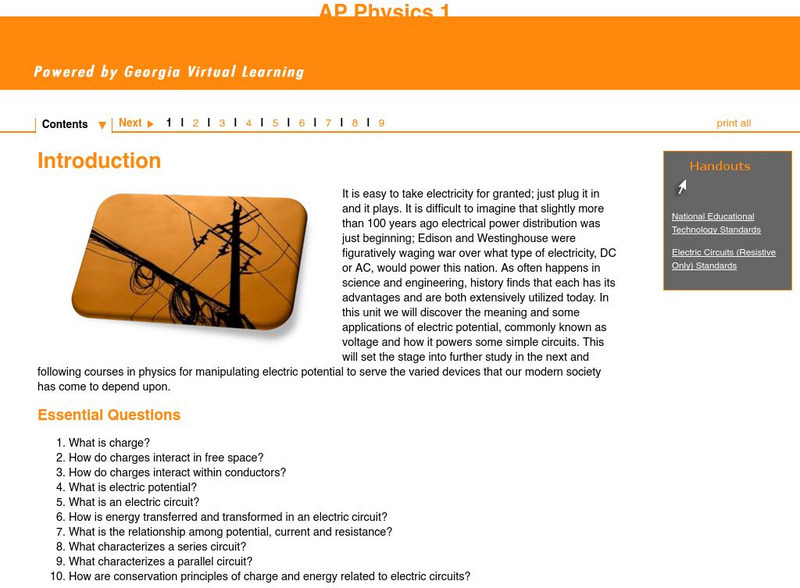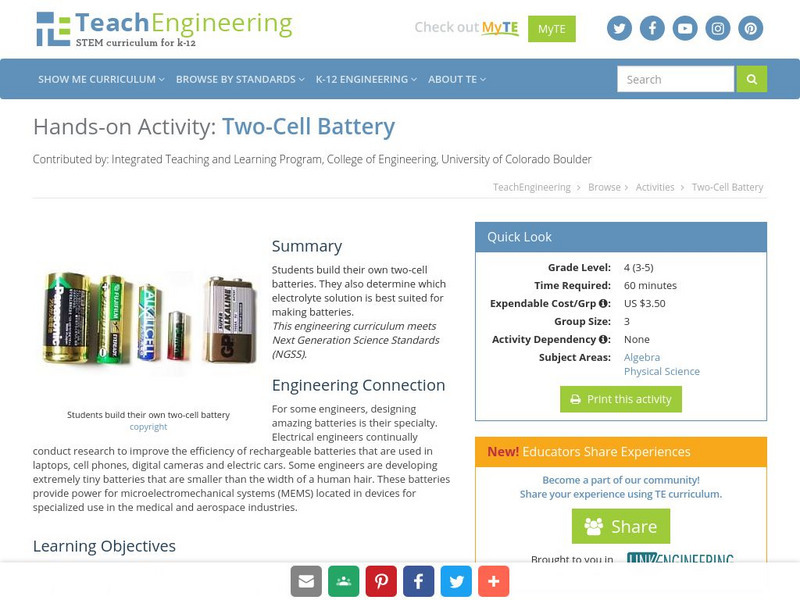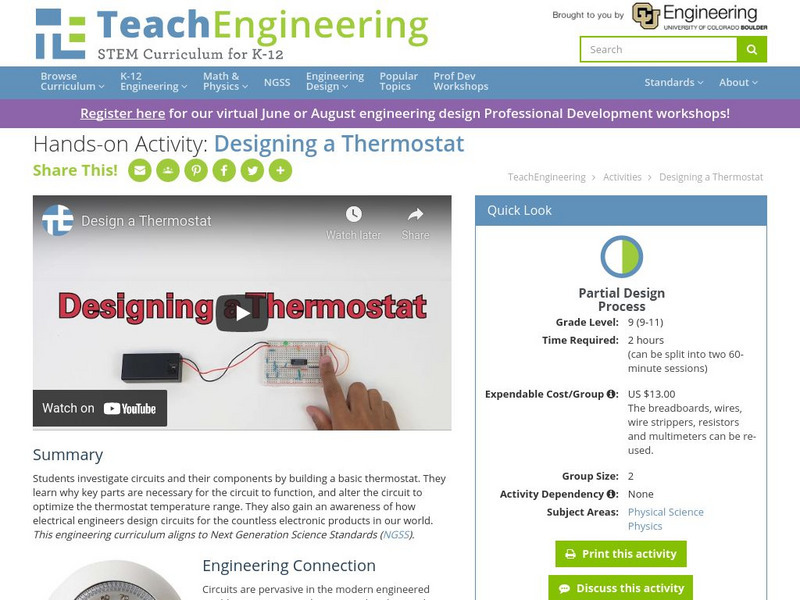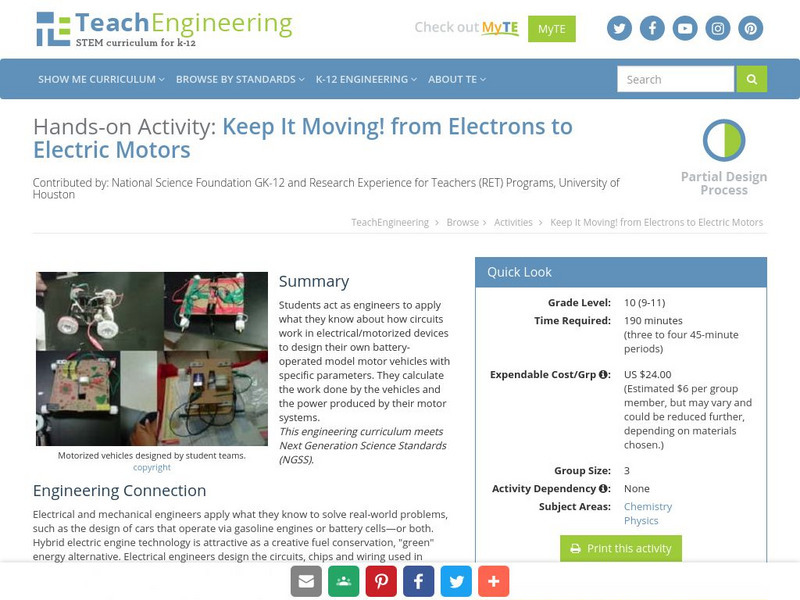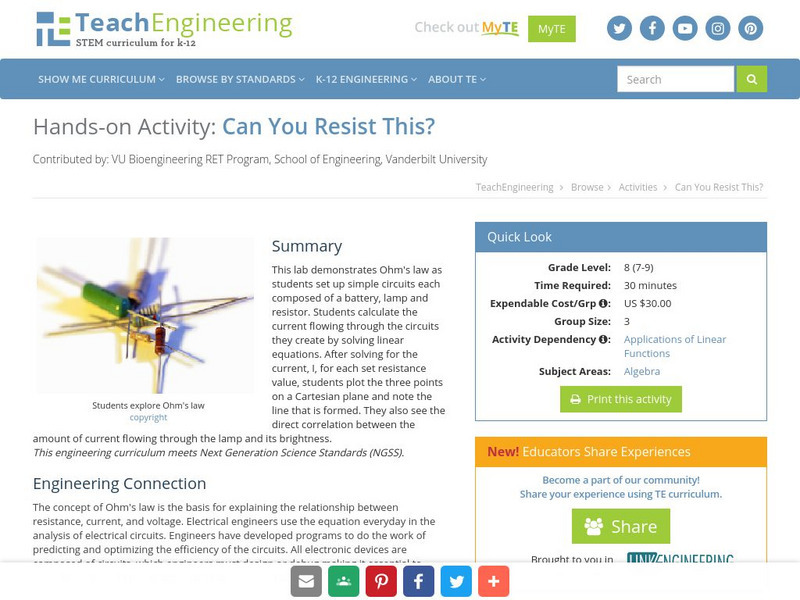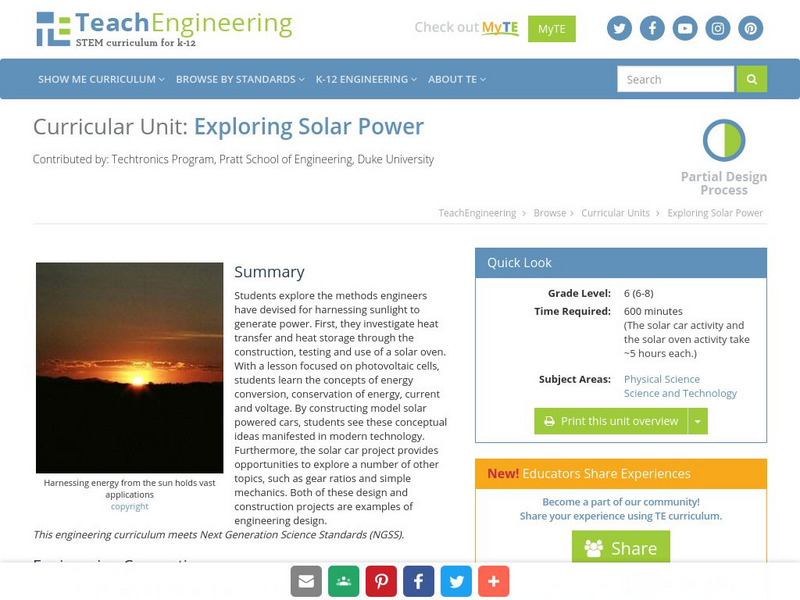Hi, what do you want to do?
Curated OER
Batteries in Series: Voltage and Light Intensity
Students participate in a hands-on activity to explore the relationship between the number of batteries in a series circuit and its voltage. Students identify the relationship between two variables and plot points on a graph.
Curated OER
Electrons on the Move
Fourth graders study current electricity while constructing a simple electric circuit. They build a galvanic cell to examine the concepts of voltage, current and resistance.
Curated OER
Ohm's Law
Students explain the meaning of Ohm's Law, and plot a graph of voltage versus current, by explaining how the slope is the resistance of the circuit.
Georgia Department of Education
Ga Virtual Learning: Electric Fields and Electric Potential
In this interactive lesson unit, students will learn about electric fields and charge density. They will explore electric field diagrams and learn how they are used, as well as discover electrostatic potential energy and how it relates...
University of Colorado
University of Colorado: Ph Et Interactive Simulations: Battery Resistor Circuit
Look inside a resistor to see how it works. Increase the battery voltage to make more electrons flow through the resistor. Increase the resistance to block the flow of electrons. Watch the current and resistor temperature change. Java...
University of Colorado
University of Colorado: Ph Et Interactive Simulations: Battery Voltage
Look inside a battery to see how it works. Select the battery voltage and little stick figures move charges from one end of the battery to the other. A voltmeter tells you the resulting battery voltage. Java required.
Science Buddies
Science Buddies: Build a Reed Switch Motor
After building a simple electric motor from a kit, with this experiment you can explore how voltage affects motor speed. The Science Buddies project ideas are set up consistently beginning with an abstract, objective, and introduction,...
Science Buddies
Science Buddies: How Bright Is Your Glow Stick? Measure It!
Objects that glow in the dark hold a special place in the imagination of both children and adults. The lights go out at night, but these odd things refuse to disappear. Where does the light come from? Do they work in any climate? In this...
University of Colorado
University of Colorado: Ph Et Interactive Simulations: Charges and Fields
Move point charges around on the playing field and then view the electric field, voltages, equipotential lines, and more. It's colorful, it's dynamic, it's free.
University of Colorado
University of Colorado: Ph Et Interactive Simulations: Charges and Fields
Arrange positive and negative charges in space and view the resulting electric field and electrostatic potential. Plot equipotential lines and discover their relationship to the electric field. Create models of dipoles, capacitors, and...
University of Colorado
University of Colorado: Ph Et Interactive Simulations: Ohm's Law
An interactive simulation that teaches about Ohm's Law, circuits, and current by observing how adjusting the voltage and resistance changes current according to Ohm's Law. This simulation can either be downloaded or played online and...
Georgia Department of Education
Ga Virtual Learning: Ap Physics 1: Electric Circuits
In this unit students discover the meaning and some applications of electric potential, commonly known as voltage, and how it powers some simple circuits.
TeachEngineering
Teach Engineering: Saltwater Circuit
Students build a saltwater circuit, which is an electrical circuit that uses saltwater as part of the circuit. Students investigate the conductivity of saltwater, and develop an understanding of how the amount of salt in a solution...
TeachEngineering
Teach Engineering: Two Cell Battery
In this hands-on activity, students build their own two-cell battery. They also determine which electrolyte solution is best suited for making a battery.
TeachEngineering
Teach Engineering: Designing a Thermostat
Students investigate circuits and their components by building a basic thermostat. They learn why key parts are necessary for the circuit to function, and alter the circuit to optimize the thermostat temperature range. They also gain an...
TeachEngineering
Teach Engineering: Pointing at Maximum Power for Pv
Student teams measure voltage and current in order to determine the power output of a photovoltaic (PV) panel. They vary the resistance in a simple circuit connected to the panel to demonstrate the effects on voltage, current, and power...
TeachEngineering
Teach Engineering: Am I on the Radio?
During this activity, students create a working radio by soldering circuit components supplied from an AM radio kit. Since this activity is carried out in conjunction with the associated lessons concerning circuits and how an AM radio...
TeachEngineering
Teach Engineering: Keep It Moving! From Electrons to Electric Motors
Students act as engineers to apply what they know about how circuits work in electrical/motorized devices to design their own battery-operated model motor vehicles with specific paramaters. They calculate the work done by the vehicles...
TeachEngineering
Teach Engineering: Whose Field Line Is It, Anyway?
Students teams each use a bar magnet, sheet of paper and iron shavings to reveal the field lines as they travel around a magnet. They repeat the activity with an electromagnet made by wrapping thin wire around a nail and connecting...
TeachEngineering
Teach Engineering: Can You Resist This?
This lab demonstrates Ohm's law as students set up simple circuits each composed of a battery, lamp and resistor. Students calculate the current flowing through the circuits they create by solving linear equations. After solving for the...
TeachEngineering
Teach Engineering: Exploring Solar Power
This unit provides students the opportunity to explore methods engineers have devised for harnessing sunlight to generate power. Students will initially explore heat transfer and heat storage through the construction, testing, and...
TeachEngineering
Teach Engineering: The Electric and Magnetic Personalities of Mr. Maxwell
Students are briefly introduced to Maxwell's equations and their significance to phenomena associated with electricity and magnetism. Basic concepts such as current, electricity and field lines are covered and reinforced. Through...
TeachEngineering
Teach Engineering: Sensing Air Pollution
Students learn about electricity and air pollution while building devices to measure volatile organic compounds (VOC) by attaching VOC sensors to prototyping boards. In the second part of the activity, students evaluate the impact of...
Science Buddies
Science Buddies: Put Some Energy Into It! Use a Calorimeter to Measure
In this science fair project, use a calorimeter with an attached heating element to measure how water responds to added thermal energy.









